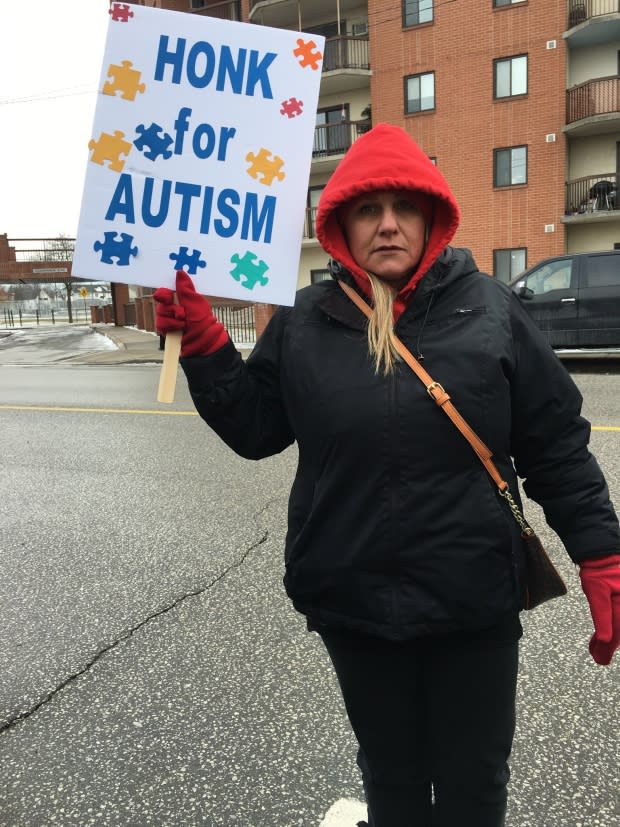Windsor parents, families protest changes to PC Autism Plan
A few dozen people spent their Valentine's Day chanting, marching and displaying signs, protesting changes to the PC Ontario Autism Plan. On February 6, the Ford government announced major changes on how it would support children with autism.
Megan Ballrigden manages the Facebook group called Autism Parents United, which organized the rally at Erie Street and McDougall Avenue.
"We're upset over what is now a plan of waste," said Ballrigden. "What is currently happening is unacceptable."
Ballrigden is a stay-at-home mother of two children under five. She wants her kids to be functional members of society.
"I don't know if that's going to happen for them," she said. Ballrigden wants to negotiate — and would like to see government officials speak with parents of children with autism.
"Listen to the parents. Look at the studies. Do some reading," said Ballrigden. "Do some homework."

Heather Dresser has two kids on the autism spectrum.
"The government doesn't take into consideration kids with multiple diagnoses," said Dresser. Her one child has a number of medical conditions, including needing to be fed through a tube.
"Therapy isn't one-size fits all," said Dresser. "These are some of the most vulnerable children in society."
According to Dresser, changes to how Ontario provides funding for children with developmental delays means her kids won't get the treatments they need.
"Therapy needs to be funded under OHIP," said Dresser. She said her message to the PC government is "not my kids."

Eliminating the wait list with the Noah and Gregory law
Lisa Gretzky, NDP critic for community and social services came to Windsor for the rally to support the families involved.
"Many of these kids are going to be excluded from receiving the supports that they need," said Gretzky.
Gretzky is tabling the Noah and Gregory law on Feb. 21 for debate. She said it addresses a flaw in how autism supports are funded for people after they turn 18.
"Right now they have to re-apply for a program called Passport and they have to re-prove they still have a development disability," said Gretzky. "Then they have to go onto another wait list which can be four to five years long."

The Noah and Gregory law Gretzky will debate next week eliminates that wait list, so there is a continuous flow of funding. It would require the government to begin the transition process at least six months before the person turns 18, and would ensure services provided to the adult are equivalent to what was provided as a child.
Gretzky said Windsor families with autism have an excellent support system, including from community members who don't have family members with autism.
"There's many people here today who don't have children with autism, but they understand the struggles these families go through," said Gretzky.
Ballrigden said she hoped the rally turnout would mean the group gets to spend more time with ministry officials.
"We're not going anywhere."

 Yahoo Movies
Yahoo Movies 
